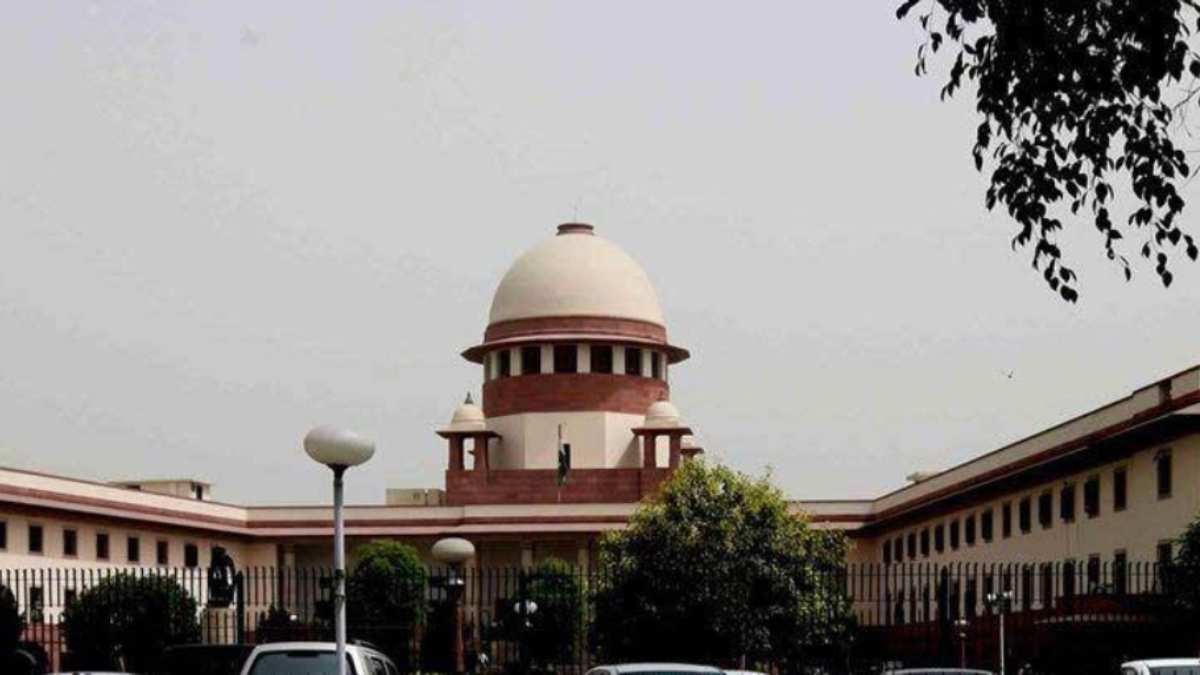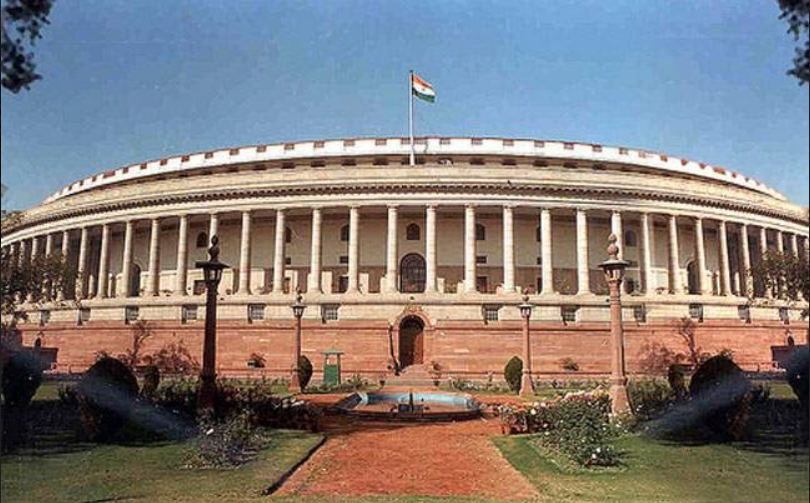
Since 1960’s, Indian Politics has been facing a major issue of party hopping or switching parties by the political members. From a former Haryana MLA Gaya Lal, who switched parties thrice within the same day, jumping ships between the Congress and the Janata Party, which led to coining of the famous term “AYA RAM, GAYA RAM’ in 1967 to the recent incidents of State of Karnataka and M.P. Crisis, the Indian politics has seen it all despite having a strict law in place to curb such incidents. The Law of Defection came to be passed in year 1985 as the 52nd Amendment Act and was added as the 10th Schedule of the Indian constitution. The statement of objects and reasons stated: “The evil of political defections has been a matter of national concern. If it is not combated, it is likely to undermine the very foundations of our democracy and the principles which sustain it. With this object, an assurance was given in the address by the President to Parliament that the government intended to introduce in the current session of Parliament an anti-defection Bill. This Bill is meant for outlawing defection and fulfilling the above assurance.”
The Tenth Schedule in paragraph 22 states a member may be disqualified on two grounds of defection by the presiding officer of a legislature if the legislator voluntarily gives up the membership of his party, or If he votes or abstains from voting in such house contrary to any direction issued by the political party he belongs. However in second scenario a member may not face disqualification if he has a prior permission from his/her party or that the party condones the member’s action within 15 days of the voting.

MERGER AS AN EXCEPTION
An exception to the 10th Schedule was also carved out in paragraph 4, where a member of the house shall not be disqualified because the law allows a party to merge with or into another party provided that at least two-thirds of its legislators are in favor of the merger. Therefore, in such a case neither the members who decide to merge, nor the ones who stay with the original party will face disqualification.
CHALLENGE
Like every new law passing the test of reasonableness, this law also had to pass the same test. Anti-Defection law when passed in 1985, the decision of the Presiding officer/Speaker was not subject to Judicial review. Para 7 of the Tenth Schedule barred the Jurisdiction of any Court in entertaining a decision against the final decision of Speaker. Finally in the year 1992, Para 7 of the Tenth Schedule was struck down by the Supreme Court vide its landmark judgment in Kihoto Hollohan vs. Zachillhu and Other, thereby allowing appeals before the Supreme Court or High Court against the final decision of the Presiding Officer. A majority view was accepted that the Speakers exercised judicial powers adjudicating rights and obligations akin to a Tribunal and hence their decisions in that capacity are amenable to judicial review. The constitutional validity of rest of the provisions of Tenth Schedule was upheld by a majority judgment except Para 7 (barring jurisdiction of courts). At the same time, the scope of judicial review was held to be confined to jurisdictional errors only viz infirmities based on Violation of Constitutional Mandate, Malafides and Non-Compliance with rules of Natural Justice and Perversity which holds valid till today.
VOLUNTARILY GIVEN UP HIS MEMBERSHIP
In Ravi S. Naik vs. Union of India, Supreme Court held that “the words ‘Voluntarily gives up his membership’ are not synonymous with ‘resignation’ and have a wider connotation. A person may voluntarily give up his membership of a political party even though he has not tendered his resignation from the membership of that party. Even in the absence of a formal resignation from the membership an inference can be drawn from the conduct of a member that he has voluntarily given up his membership of a political party to which he belongs”. Examples may include where members engages in anti-party activities such as criticizing the party on the public forum on multiple occasions and/or attending rallies organized by the opposition parties. A recent example in this context is of Sharad Yadav of party Janata Dal (United).
Whether the member gets disqualified after voluntarily giving up his membership
In the case of G.Vishanathan vs. Speaker Tamil Nadu Legislative Assembly, Madras and Another6, the Supreme Court held that “In view of the explanation to paragraph 2(1) of the Tenth Schedule, even if a member is thrown out or expelled from the party, for the purposes of the Tenth Schedule, he will not cease to be a member of the political party that had set him up as a candidate for the election. He will continue to belong to that political party even if he is treated as ‘unattached’. However, if he joins another party he will be treated to have voluntarily given up his membership of the party by which he was set up as a candidate for the election.
ACCEPTANCE/ REJECTION OF RESIGNATIONS AND EFFECT OF 33RD CONSTITUTIONAL AMENDMENT
In Karnataka Legislative Assembly wherein 17 legislators resigned from the Congress and JD(S), the Karnataka Assembly Speaker rejected the resignations, disqualified those 17 MLA’s and also barred them from contesting upcoming election. This led to filing of a petition by those 17 MLA’s against the decision of the Speaker before Supreme Court of India7 . The Supreme Court held that though the 33rd Constitutional Amendment changed the constitutional position by conferring discretion on the Speaker to reject the resignation however such discretion is not unqualified as the resignation can only be rejected if the speaker is ‘satisfied that such resignation is not voluntary or genuine’. Thus, even after the 33rd Constitutional amendment, Speaker has a limited discretion for rejecting the resignation and there cannot be any ‘roving inquiry’ as such or determination of motive of the resignation.
91st Constitutional Amendment and Status of Disqualification Proceedings after Resignation
The 91 st Constitutional amendment was brought to further strengthen the evil of defection as it introduced Article 75 (1-B), 164 (1-B) and 361 (-B) in the Constitution of India barring any person who is disqualified under the Tenth Schedule from being appointed as ‘Minister’ or from holding any ‘Remunerative Political Post’ from the date of disqualification till the date on which the term of his office would expire or if he re-elected to the legislation whichever is earlier. The Supreme Court held that ‘the disqualification relates to the date when such act of defection takes place and the tendering of resignation doesn’t have a bearing on the jurisdiction of speaker in this regard’. Therefore, taint of disqualification doesn’t vaporize, on resignation, provided the defection has happened prior to the date of resignation.
Another interesting point of law which came to be tested in the Karnataka Assembly Case was whether the Speaker has a power to disqualify members from contesting elections under the 10th Schedule. Justice N.V. Ramana answering this in Shrimanth Balasaheb case held that the Tenth Schedule doesn’t specify the consequences of such disqualification. Article 191(2) dealing with disqualification either doesn’t provide the period of disqualification or duration as such like the Tenth Schedule. Even the Representation of Peoples Act, 1951 doesn’t deal with disqualification under the Tenth Schedule. Therefore, neither under the Constitution nor under the Statutory Scheme, a disqualification under the Tenth Schedule of Constitution would be a bar for contesting election and Speaker doesn’t have power to specify the period under the Tenth Schedule or bar from contesting elections after disqualification until the end of the term of the legislative assembly.
THE POWER OF GOVERNOR TO CALL FOR A TRUST VOTE IN THE ASSEMBLY
In another very recent political power tussles in Madhya Pradesh wherein resignation of around 22 members of ruling party that time i.e. of Congress and communications by the Governor calling for the ‘trust vote’ in course of running assembly resulted in testing the powers of Governor by the Supreme Court of India. Justice D.Y. Chandrachud answering this in Shivraj Singh Chouhan and Others vs. Speaker, Madhya Pradesh Legislative Assembly and Others8 held that firstly, the confidence of the house can only decided on the floor of the house and not by the Governor doing an independent verification. Secondly, in case, the Governor thinks that the ruling government has lost the majority, the correct course of action would be for the Governor to call upon the Chief Minister to face the assembly and establish the majority in the shortest possible time. And lastly, it’s only in exceptional cases, the Governor can decide which is the existence of ‘all pervasive violence ‘and because of which a free vote in not possible. However, a word of caution was added on the exercise of power of Governor in calling for a trust vote that ‘A Governor should always remember that the principle of collective responsibility is maintained at all times and must be exercised with caution.’
CONCLUSION
Though there is a law to check the deficiency of defections within the party however by passage of time it’s not proving very symbolic to curb the evil of defection for which the law was originally brought and resultantly, it has it itself become deficient. One may also clearly advocate that such instances also results in deceiving the mandate of the voters who reposes faith in its party and their leaders. Even the exception of Merger may need to be considered. Thus, it may be safe to consider a reassess of the law again so that unbridled incidents of defections doesn’t go unheeded as ideally in India, a largest democracy in the world, it’s the voters and system who suffers as a result of such defections. It would be apt to conclude by quoting what J. N.V. Ramana in the case of Shrimanth Balasaheb Patil observed in its concluding paras-
‘In any case, there is a growing trend of speakers acting against the constitutional duty of being neutral. Additionally, political parties are indulging in horse trading and corrupt practices, due to which the citizens are denied of stable governments. In these circumstances, Parliament in required to re-consider strengthening certain aspects of the Tenth Schedule, so that such undemocratic practices are discouraged.’
Adv. Rahul Bhandari is an advocate on record at the Supreme Court of India.